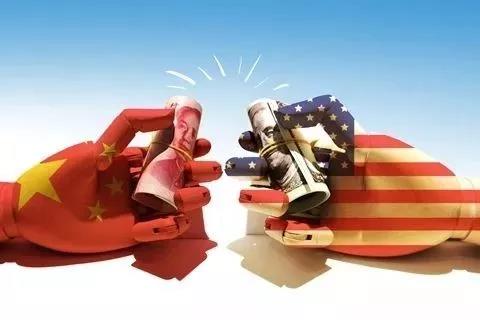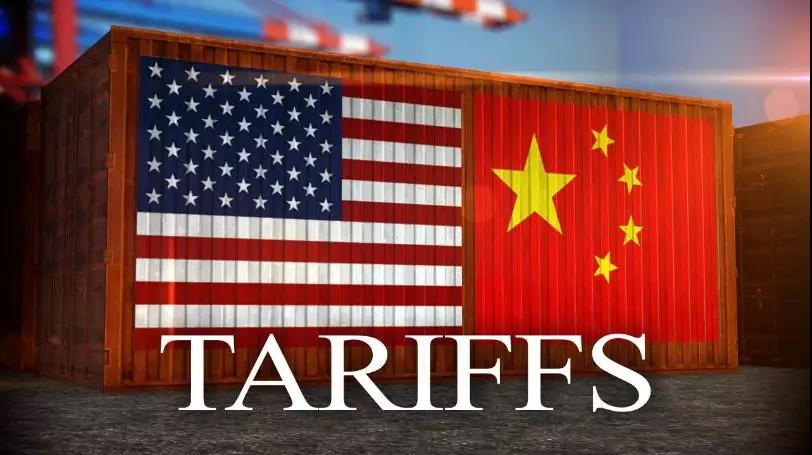
Global Markets Roiled by Trump’s Threat of Expanded Tariffs on Chinese Goods
NATHAN VANDERKLIPPE
PUBLISHED MAY 6, 2019
China’s government sought to project calm in response to U.S. President Donald Trump’s threat to sharply expand tariffs on Chinese goods, which roiled markets on Monday.
Foreign Ministry spokesman Geng Shuang said a delegation of negotiators is still “preparing to travel to the U.S. for trade talks,” although he declined to comment on when that might be. The latest round had been scheduled for Wednesday, with expectations that a deal could be concluded shortly. “We hope the U.S. will join efforts with China and we can meet each other halfway,” Mr. Geng said.
Stock markets in China plunged Monday, with China’s Shenzhen and Shanghai exchanges down 7.4 and 5.6 per cent, respectively. U.S. and Canadian markets dropped sharply in early trading, but regained most of the lost ground by the close.
After North American markets closed Monday, U.S. trade chief Robert Lighthizer added to jitters by saying China was “reneging” on commitments made during previous trade talks, and that the United States would follow through with Mr. Trump’s tariffs.
On Sunday, Mr. Trump promised a sweeping hike of tariffs on Chinese goods in one of the sharpest escalations in the months-long trade war between the world’s largest economies.
Mr. Trump said he would hike tariffs to 25 per cent on US$200-billion of Chinese goods by Friday – a pledge echoed by Mr. Lighthizer on Monday when the trade representative said the higher tariffs could take effect as soon as Friday.
Mr. Trump earlier said that he pledged to extend equally punitive tariffs on the remaining US$325-billion in goods exported to the United States from China, and to do so “shortly,” faulting Beijing for moving too slowly and trying “to renegotiate” on a trade deal that markets had seen as nearly complete. Only a week earlier, Treasury Secretary Steven Mnuchin had said the two sides were “getting into the final laps.”
Mr. Trump’s threats threw into question the latest round of trade talks between the United States and China, and underscored the risk that the continuing trade war poses to global trading patterns.
This has “put the whole world into a chaotic situation once again,” said Wang Huiyao, founder and president of Center for China and Globalization, a prominent think tank in Beijing. Indications from the United States had been that “a good deal has been done, just some final touches need to be in place,” he said.
Instead, Mr. Trump’s “unpredictable style has really, I think, interrupted the negotiations,” Mr. Wang said, calling the sudden imposition of new tariffs “not really rational.”
The White House pivot on a China deal suggested that the state of negotiations had been misunderstood, said Andrew Polk, founding partner of Trivium, a Beijing-based business advisory firm.
“I’m not sure a deal is impossible at this stage. But markets and others were thinking about it wrong,” he said. “The closer you came, the harder it got to finalization, because you were then dealing with the stickiest possible issues.”
The threat to impose new tariffs also adds weight to arguments that elements in the Trump White House are taking a hard-line approach to trade talks. “My understanding is that the U.S. negotiators basically want all or nothing,” Mr. Polk said. “So even if a deal has been close for the last several weeks, a deal that doesn’t get them 100 per cent of what they want is no deal.”
The Chinese position on Mr. Trump’s announcement was difficult to discern. While some observers called it unlikely Beijing would send a team to Washington to conduct talks under a serious new economic threat from the White House, Chinese state media largely kept silent on the tariff threats. The People’s Daily Online reported Mr. Geng’s comments without reference to the detail of Mr. Trump’s plans. A Sina Finance article on Monday’s tumble in share prices made no mention of the United States.
Belief that a trade deal is imminent has been supported in part by Mr. Mnuchin, who has in recent weeks outlined a series of measures to be included in any such agreement. They include measures to constrain Beijing’s ability to manipulate its currency and, crucially, a willingness by both sides to establish “enforcement offices” to ensure compliance.
But Mr. Trump has political cause to delay conclusion of a deal, argued Ken Courtis, the chairman of Starfort Holdings and former vice-chairman of Goldman Sachs. U.S. economic performance has been glowing, with the most recent results showing GDP growth at 3.2 per cent, unemployment at a half-century low and inflation slowing.
“What more does he need on the economic front at the moment? And the sugar high from a deal with China will wear off after a couple of months,” Mr. Courtis said.
In China, too, Mr. Trump’s threats were seen as political in nature. ”The decent economic performance in the first quarter to a certain extent provides Trump more confidence to pick trouble with China,” said Mei Xinyu, a researcher with the Chinese Academy of International Trade and Economic Cooperation, a consultative body under the Ministry of Commerce.
For Beijing, meanwhile, the country’s continued growth – 6.4 per cent in the most recent quarter – has demonstrated resiliency in the face of the U.S. tariffs. “Over the course of the trade war in the past year, we can basically conclude that killing China as an exporter is not as easy as Trump thought,” Mr. Mei said.
“I think the best tactic for China is to persevere in this war and patiently wait for time to pass by.”
Indeed, Mr. Trump’s reputation for unpredictable decision-making has raised confidence in China that his latest threats will be short-lived.

“Now he’s saying we’re going to increase tariffs. And who knows? Two weeks later he may say, ‘Well it’s fine. We’re going to sign a deal with China.’ If you’re the CEO of a company, you just don’t know. You have to wait and see. And so you pass along costs to U.S. consumers,” said Edward Tse, founder and CEO of Gao Feng Advisory Company, a Chinese strategic and management consultancy.
Still, in raising the stakes on talks that had been nearing conclusion, the President also gave new credence to fears that he is seeking something greater than mere trade concessions.
“This is the economic component of a containment strategy – punishing China in the world trading system on which it relies so heavily, and seeing what they will give in return,” said Jane Golley, an economist who is acting director of the Australian Centre on China in the World.
“What’s at threat is the global trading order that the U.S. has upheld for decades, and that Trump is steadily undoing.”

